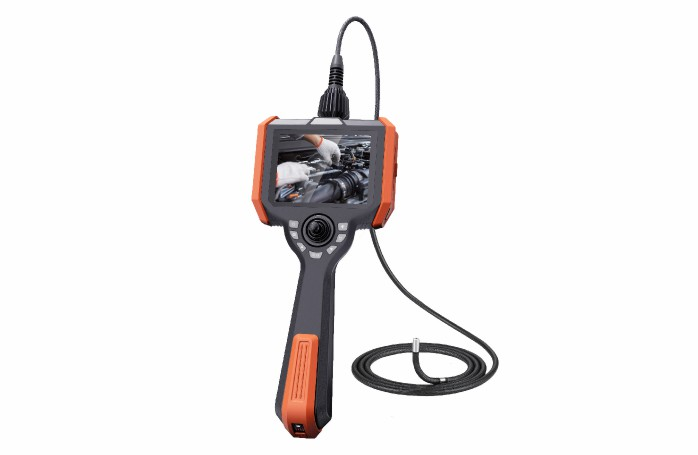Want to know more?
Don't miss any product updates on our industrial borescopes

Industrial borescope
solution service provider
Company Address
Office : 18F, Pingshanshouzuo, Pingshan District, Shenzhen,Guangdong
Contact Info
Ph: +86-0755-89588241

Industrial endoscopes are widely used in precision casting. As an advanced non-destructive testing tool, they play an irreplaceable role. The following is a detailed introduction to the application of industrial endoscopes in precision casting.

Industrial endoscopes can penetrate deep into the interior of precision castings and conduct intuitive and accurate detection of defects such as pores, slag inclusions, cracks, looseness, and sand holes. If these defects are not discovered and handled in time, they will seriously affect the quality and performance of the castings. Through the endoscope, the inspector can directly observe the location, shape and size of these defects, and take corresponding repair measures. Industrial endoscopes are usually equipped with high-resolution cameras and lighting systems, which can clearly present the details and defects inside the castings, providing a reliable basis for subsequent analysis and processing.
In the precision casting process, industrial endoscopes can be used to observe the flow of molten metal, the filling of the mold, and the solidification process of the casting in real time. This real-time monitoring helps operators to promptly discover problems in the casting process, such as poor metal flow and uneven mold filling, so as to quickly adjust the process parameters and improve production efficiency and product quality.
Through the observation results of the endoscope, the operator can understand the actual situation in the casting process and then optimize and adjust the process parameters. For example, the pouring speed can be adjusted according to the flow of molten metal, and the mold temperature and pressure can be adjusted according to the filling of the mold, so as to ensure the quality and production efficiency of the casting.
In addition to casting inspection, industrial endoscopes can also be used to inspect the internal conditions of casting equipment. Through the endoscope, maintenance personnel can check the wear of the equipment, the looseness of components, and whether there are problems such as blockage, so as to timely discover and deal with equipment failures and extend the service life of the equipment.
By regularly using industrial endoscopes to conduct internal inspections of equipment, potential hidden dangers of failure can be discovered in time, so that preventive maintenance measures can be taken. This helps to reduce the frequency of equipment failures, reduce maintenance costs, and improve the reliability and stability of equipment.
Wall thickness detection: For some precision casting workpieces that need to ensure a specific wall thickness, industrial endoscopes can achieve precise control of wall thickness by measuring the thickness of the workpiece in the image.
Surface quality detection: Industrial endoscopes can also be used to detect the surface quality of precision casting workpieces. By observing the roughness, cracks, oxidation, etc. of the workpiece surface, the processing quality and service life of the workpiece can be evaluated.
Hole and pipe detection: During the casting process, holes and pipes need to be opened in the casting to meet the functional requirements of the casting. Industrial endoscopes can be used to detect whether the quality and position of holes and pipes are correct to avoid problems such as leaks.
Size and shape detection: The size and shape of the casting are important features of the casting and are directly related to the use effect of the casting. Industrial endoscopes can be used to detect whether the size and shape of the casting meet the requirements and whether the geometric features of the casting are correct.

Industrial borescope
solution service provider